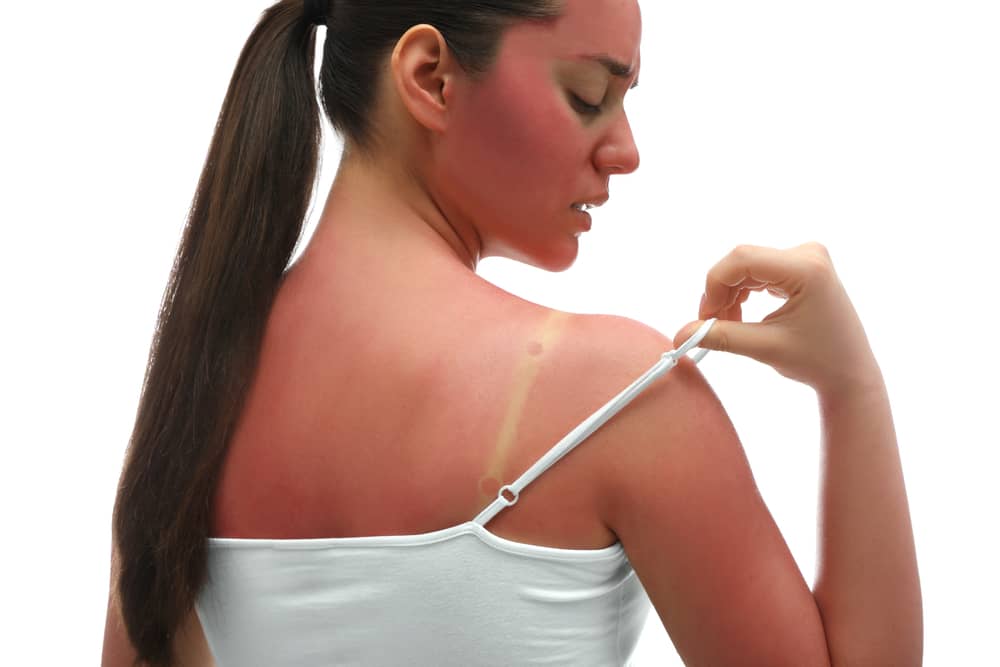The sun is an essential part of life. Not only does it allow plants to grow, providing us with food, but it’s also an excellent source of Vitamin D for us humans. This is crucial for developing and maintaining healthy bones and muscles, energy and mood. However, it is estimated that 90% of skin aging is the direct result of sun exposure. Furthermore, skin cancer is the most common cancer in the world. So, doing everything in your power to prevent, treat and reverse sun damage skin is an important way to protect your overall health. It is also one of the key components to looking youthful and feeling your most vital.

Signs of Sun Damaged Skin
Sun damage occurs when ultraviolet (UV) light hits any skin that isn’t protected by some form of sunscreen whether it’s a:
- Topical lotion
- UV clothing
- Hat
This light causes DNA damage not only on the surface of your skin, but also in the deeper layers of your dermis. This is why it may take years before you see the damage that has already occurred. Photoaging often first manifests in your 20’s, and simply continues to accrue as you age unless you stop it. Signs of sun damage in the skin include:
- Fine lines & wrinkles
- Brown sunspots & areas of hyperpigmentation
- Melasma
- Sagging, loose skin
- Uneven “crepey” skin texture
- Spider veins
- Overall redness
While every single person experiences photoaging, factors such as ethnicity, sun exposure, where you live, and whether or not you use tanning beds affect its speed and extent.
Prevent Sun Damage with Daily Sunscreen
The best way to treat sun-damaged skin is to prevent it. This is why every medical professional, including myself, recommends wearing a broad-spectrum sunscreen of at least SPF 30 every day, rain or shine. Sunscreen lasts roughly 2 hours, so it needs to be reapplied throughout the day. Maybe you are reading this and thinking “I don’t sit in the sun or Boston isn’t sunny in the winter so I don’t need to worry about sunscreen”. But we all get sun exposure just going through our daily routine even if we never go anywhere near a beach. If you don’t believe me, just compare the look of your left “driving” arm versus your right arm.
Personally, I recommend the Elta MD line of sunscreens because they feel good on the skin, and I know that they work. But there are good ones available over the counter at your local drugstore or Target. A sunscreen may use a chemical, a mineral or a combination of the two to block the sun’s UV rays. Each has its pros and cons. The only truly important thing when choosing a sunscreen is finding one that you will actually wear.
Treating Sun Damaged Skin
Prevention is the best, but the reality is that no one can completely avoid sun exposure. And, as discussed, certain lifestyle choices as well as genetics can greatly affect the degree of your photoaging. This is why I offer my micro-needling Boston patients a wide range of treatment options for sun damage and hyperpigmentation. While the right one for you is going to depend on your anatomy and needs, my first recommended step for anyone is appropriate skincare. A retinol product is a fast and easy way to promote cell turnover, and improve your skin’s texture and tone.
If your sun damage is more extensive, however, you may need to embrace a non-surgical procedure such as a:
- Chemical Peel
- Laser Skin Resurfacing Boston
- Microneedling
I have gotten excellent results treating photo damage and hyperpigmentation with all three of these options. Furthermore, each one has different levels of intensity. The right laser for you may be something simple like Clear + Brilliant, or you may need something more intense like an ablative CO2 or Erbium procedure. The good news with sun damage is that it is reversible. And it’s never too late to start. To find out more about treating sun damage with laser skin resurfacing, chemical peels and microneedling, or any surgical or non-surgical procedure with Dr. Sean Doherty at his Boston or Chestnut Hill office, contact us today or call (617) 450.0070 to schedule a consultation.